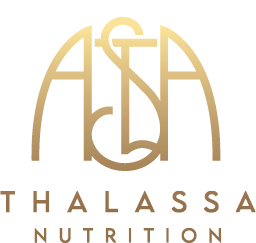A Plant-Based Diet and Rejuvenates Your Brain
It’s no secret that plant-based foods offer amazing health benefits. From sustained weight loss to higher energy, a diet consisting of nutrient-rich fruits and vegetables has transformative powers — but what effects does it have on brain health? While few studies have been conducted on this question, the surfacing answers we have access to are illuminating.
A Plant-Based Diet and Your Brain
The brain is one of the most mysterious biological frontiers. The endeavor to understand brain processes, such as system coordination, emotions, and intelligence, has evolved into its own niche branch of research. Yet, the effects of a plant-based diet on brain function is not as mysterious.
As Dr. Michael Greger, a clinical nutritionist and Fellow of the American College of Lifestyle Medicine, states: “Plant-based eating can improve not only body weight, blood sugar levels, and ability to control cholesterol, but also emotional states, including depression, anxiety, fatigue, and sense of well-being, and daily functioning.”
This may be in part due to the benefits of high levels of antioxidants found in plant-based ingredients, as well as a decreased intake of glycotoxins. These “aging toxins” are created in heat-processed foods — hamburgers and hot dogs, chips and crackers, and processed cheese — and cause an increase in oxidant stress and inflammation. Due to these properties, glycotoxins have been linked to diabetes and cardiovascular disease.
Long-Term Benefits
The Mediterranean diet offers a great example of the positive long-term effects of plant-based eating. Mediterranean cultures eat an excess of plant foods and limited meat. Studies have shown that Mediterranean people generally live longer and have a lower risk of developing select chronic illnesses.
It all comes down to the specific type of plant-based diet. A diet that excludes nitrates and nitrites also avoids the harming effects of these preservatives which have been suggested to increase the risk of dementia. With that said, the Cognitive Vitality program, a branch of the Alzheimer’s Drug Discovery Foundation, discovered that pescatarians, fish-eating vegetarians, showed a lower risk of dementia in conjunction with their omnivore counterparts. Advertisement
While more research is being conducted on the subject, it’s clear that plant-rich diets bolster overall health, including that of brain function.
The Importance of Vitamin B12 and Omega-3 Fatty Acids
While a plant-based diet has many benefits, it also lacks certain nutrients found in meat and dairy products that are paramount for brain health. Two of the most important nutrients that have been associated with brain health are vitamin B12 and omega-3 fatty acids.
Vitamin B12 has many functions within the body (think DNA and red blood cells), yet it is not naturally produced and therefore must be ingested through animal-based products or supplements. Omega-3 fatty acids are key ingredients for a well-oiled, functioning body. These fatty acids are found in certain fish species, as well as plant-based foods such as nuts and seeds.Advertisement
Vegetable and fruit rich diets help to detox and clean your physical body via balanced nutrition, vitamins, and reduced processed foods. With that said, remember to keep your brain in mind. This complex muscle requires attention and care. It’s incredibly important to speak with a certified nutritionist or physician to make sure your diet is inclusive of all the appropriate nutrients to keep your brain function at its peak.
Brain-Boosting Plant-Based Sources
Antioxidant-Rich Foods
Grown Up Antioxidant Slushie/One Green Planet
The brain’s susceptibility to oxidative stress, damage caused to cells, proteins, and DNA by too much oxidation, means that an antioxidant-rich diet can reduce damage and increase brain health. TheNational Center for Biotechnology Information states: “several ‘anti-oxidant diets’ have become popular for their publicized positive effects on neural function.”
Certain fruits and vegetables — such as berries, peaches, avocado, asparagus, spinach, tomato, onion, and garlic — are high in an antioxidant called glutathione, which is produced by the body. Cruciferous vegetables — such as broccoli, cabbage, and kale — are high in sulfur, which can increase the natural production of glutathione.
Try making antioxidant-rich meals such as Antioxidant-Rich, High Energy Matcha Bliss Balls, Whole Roasted Cauliflower With Mint Parsley Pepita Sauce, Berry Antioxidant Granola, French Toast Chia Power Pudding, or Spinach Stuff Mushrooms.
Tryptophan-Rich Foods
Most associate tryptophan with the unavoidable food coma after a delicious turkey meal. Yet, tryptophan, an essential amino acid, also creates serotonin, which has been linked to stabilizing moods and healthier sleep. Both of these are incredibly necessary for cognitive function. Tryptophan can be found in nuts, seeds, tofu, oats, beans, and lentils.
Infuse your diet with these tryptophan-rich meals: Miso Soup with Garlicky Lentils, Kale, and Mushrooms, Grilled Buffalo Tofu Po’ Boy with Apple Slaw, Brazil Nut Vegan Parmesan, and Spicy Bean, Mushroom, and Avocado Quesadilla.
Probiotic-Rich Foods
Probiotics are live yeasts and bacteria that are found in certain foods — such as sauerkraut, kimchi, olives, soy nut, and miso — as well as in supplements. Probiotics are great for improving gut and digestive health by balancing good and bad bacteria, while also replenishing good bacteria that have been killed off.
Why is this important for brain health?
Recent studies show that your enteric nervous system, the nerve cells that line the gastrointestinal tract, acts as a “brain in your gut” and affects your digestion and brain function. Therefore, a happy gut is a happy mind!
Try making probiotic meals such as Probiotic Blueberry Yogurt Bites, Vegetable Miso Soup, Creamy Kimchi Zucchini Pasta, Sauerkraut, Sunflower Seed, and Cashew ‘Tuna’ Fish, or Chickpea Sauerkraut Salad Wraps.

 no
no


![Grown Up Antioxidant Slushie [Vegan, Raw, Gluten-Free]](https://7gigzxopz0uiqxo1-zippykid.netdna-ssl.com/wp-content/uploads/2015/01/slushie.jpg)


 no
no no
no